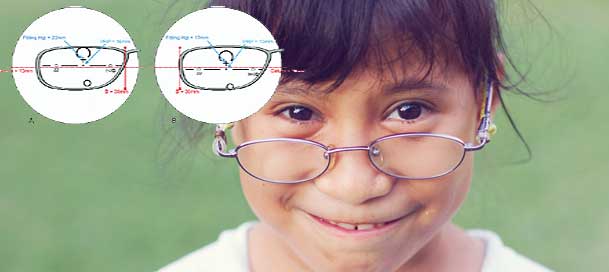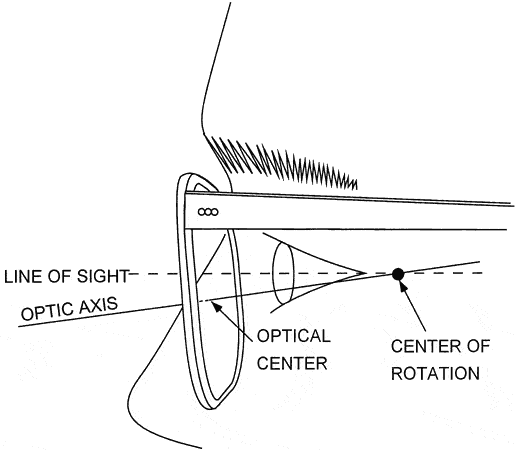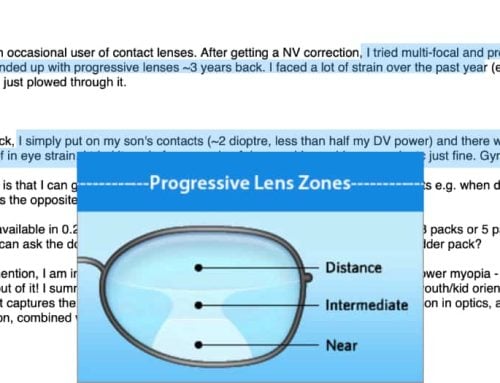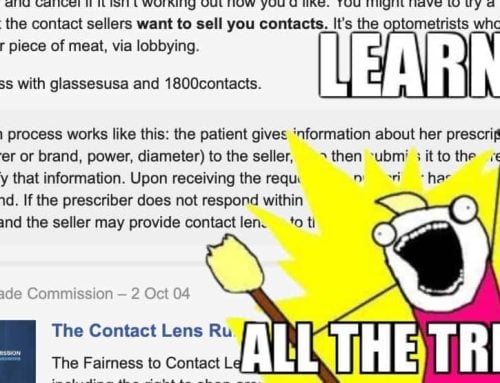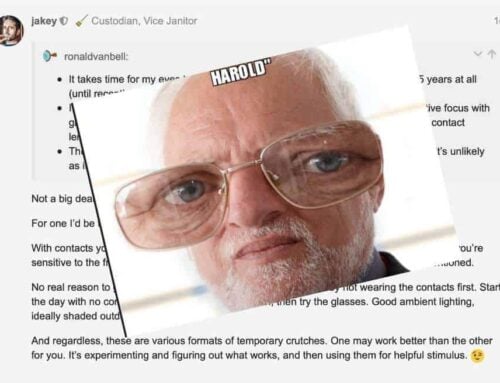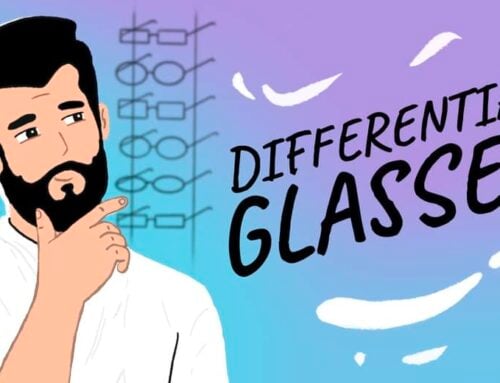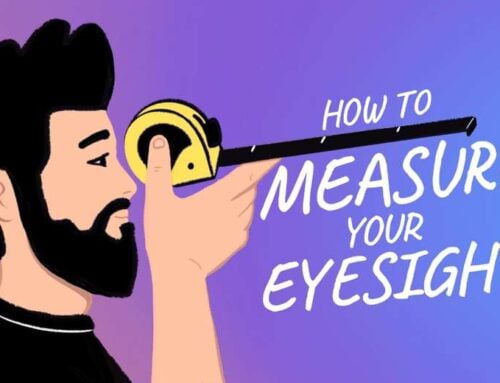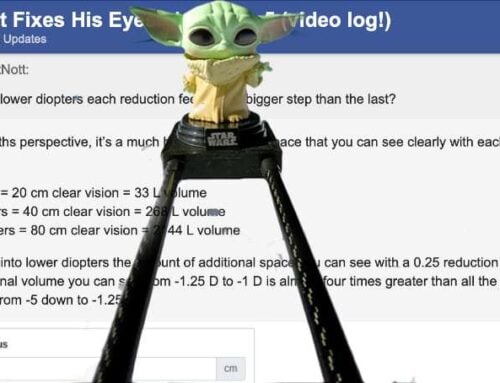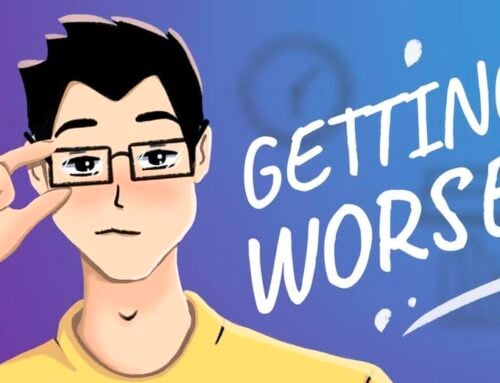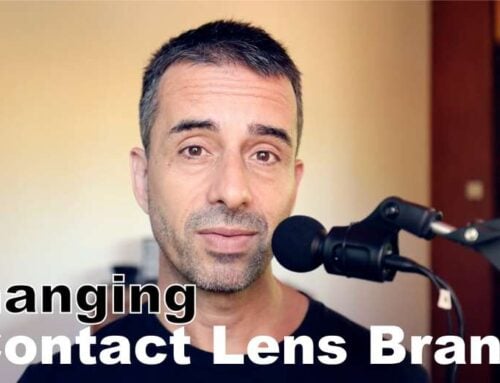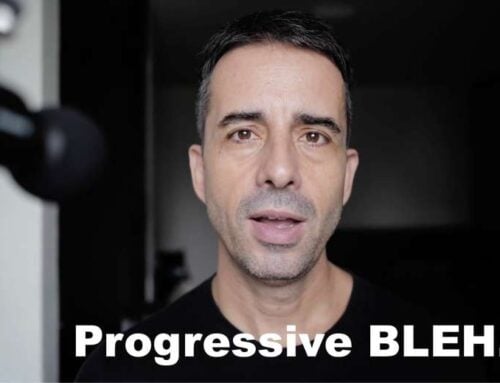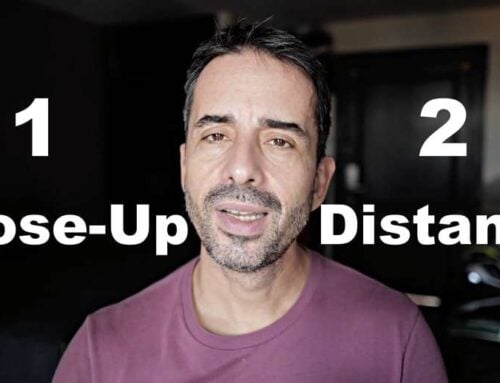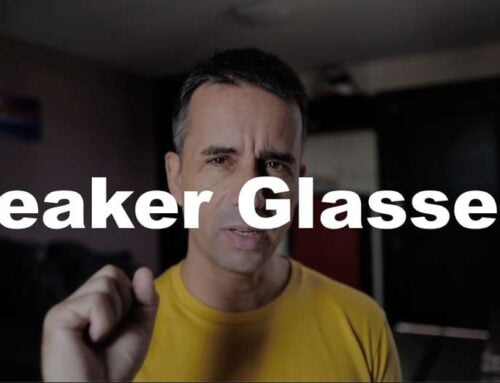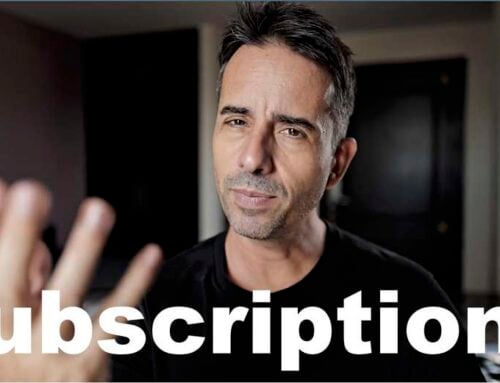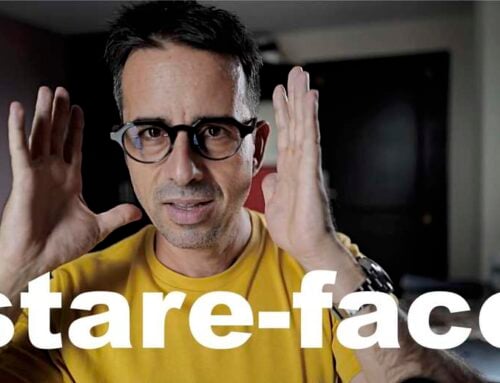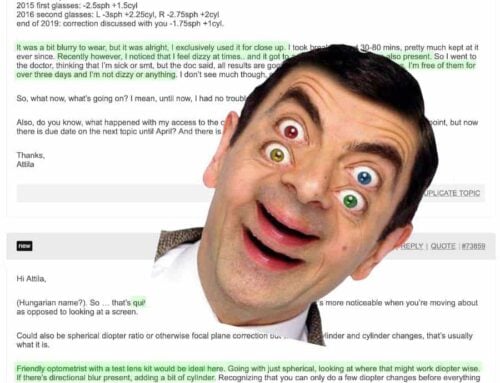In the course we talk about prescription use in a number of installments. I also have an entire category of paid support that includes prescription suggestions. The reason for this is of course that prescriptions significantly affect your eyesight health.
As you likely already know from reading the myopia basics, all of your myopia past the first -1.50 diopters is likely caused by nothing other than your prescription glasses. Glasses seriously affect your eyesight!
At the same time, I often make your prescription reduction and close-up prescription choice sound like a simple one. Why?
I want you to feel comfortable in measuring your eyesight, and experiencing the effect of a dedicated close-up prescription (so much less eye strain!). I also want you to experience the effect of discovering active focus, and your own ability to see the eye chart more clearly, with less prescription, than you thought possible. All of these things require you not to be afraid to get to know and change your prescription needs.
Your eyes can be quite forgiving, so there isn’t much risk in a well understood prescription change. At the same time though, even small variations in focal plane can notably affect your eyesight. Sara writes in her forum topic titled, “Crooked Glasses Causes Problems?”:
![]() My centimeter values started really tanking this past month and a half, and I’ve been worrying that some new unknown factor is impeding progress. From a high of around 38 cm, I was down to 35 or 36. Then I realized that I’d sat or stepped on my distance glasses one day (can’t remember what I did exactly) and they were sitting a bit crookedly on my nose. I was getting double vision for distances that didn’t used to be problems, and could no longer focus pull. I stopped doing most near work for a while, wondering if excess close focus was the problem, but that didn’t solve it. Then I tried on another pair of my glasses (same frames, different prescription — one of the equalized pairs) to see if they fit better, and yes, they did. To a casual observer, the first pair were not obviously crooked, but it was more clear when I put on the other pair.
My centimeter values started really tanking this past month and a half, and I’ve been worrying that some new unknown factor is impeding progress. From a high of around 38 cm, I was down to 35 or 36. Then I realized that I’d sat or stepped on my distance glasses one day (can’t remember what I did exactly) and they were sitting a bit crookedly on my nose. I was getting double vision for distances that didn’t used to be problems, and could no longer focus pull. I stopped doing most near work for a while, wondering if excess close focus was the problem, but that didn’t solve it. Then I tried on another pair of my glasses (same frames, different prescription — one of the equalized pairs) to see if they fit better, and yes, they did. To a casual observer, the first pair were not obviously crooked, but it was more clear when I put on the other pair.
Now I’m able to focus pull on the Snellen once more. But I won’t know for a while to see if I can bring my numbers up past 36 cm again.
***
For the full thread, click the link to the topic above. It does include some of my own observations.
You wouldn’t notice the effect of crooked glasses if you have a strong prescription and never challenge your eyes for focus. It’s one of the many (questionable) benefits of the current mainstream prescription paradigm – the glasses are so strong that you see clearly, no matter what. Of course that’s also where the increasing myopia comes from.
Since the refraction in your glasses lens changes depending on where you see through it, crooked lenses change your effective focal plane (and prescription) to some degree.
You can try this yourself by moving your frames on your face, especially while looking at some distant writing that you can barely read. Having a challenging reference (much like an eye chart at the optic shop) allows you to see to what extent moving the lens in front of your eye affects your immediate vision.
There is more subtle effect that you may not immediately perceive, that can come from crooked lenses. A lot of it happens in your brain’s visual cortex, which may have trouble dealing with a sudden change in focal plane.
Your optometrist is trained to assess where the optical center falls on the frame you buy, and adjusting the frame for your face. Crooked glasses defeat much of this, and can cause other side effects (headaches, nausea, noticeable eyesight fatigue).
When you move from the single prescription paradigm to a rehabilitative use of glasses, you will start noticing when the focal plane isn’t quite where it should be. You also notice the effects of too much close-up time and poor lighting. All of these things are beneficial and necessary to help protect your eyes, as well as recover healthy vision.
I often talk about reducing prescription complexity. The simpler the focal plane change, the less chance there is for something like crooked glasses to affect your vision. All of the steps we take for protecting your vision are designed to be both simple to implement and also safeguard you from hurting your eyes.
What’s the short answer to crooked glasses vs. worsening eyesight?
No, crooked glasses probably won’t make your eyes worse. They can slow down your ability to improve your eyesight, though. And they can cause headaches and dizziness and generally feeling unwell. And if you use your full distance prescription for close-up, your glasses will make your eyes worse, whether or not they are crooked.
So it is a good idea to make sure your lenses are set up correctly, to avoid negative side effects.
What about glasses you ordered online?
If you ordered the glasses online and input the correct values for PD and frame size, you are likely getting a well set up lens. While a good optometrist is still the best choice, the online shops tend to have a very reliable setup that tends to deliver properly.
I hope you are enjoying some healthy eyesight today!

